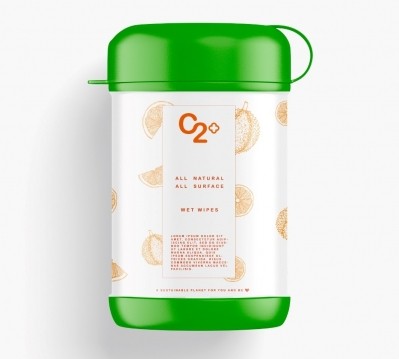Surface defence: Kao study finds that skin pH and temperature affect hand barrier antibacterial function
![Kao study has demonstrated that skin pH and temperature can affect the antimicrobial activity on the surface of the hands. [Getty Images]](/var/wrbm_gb_food_pharma/storage/images/_aliases/wrbm_large/publications/cosmetics/cosmeticsdesign-asia.com/headlines/formulation-science/kao-study-finds-that-skin-ph-and-temperature-affect-hand-barrier-antibacterial-function/13099004-1-eng-GB/Kao-study-finds-that-skin-pH-and-temperature-affect-hand-barrier-antibacterial-function.jpg)
A study analysed the hands of 105 subjects. Five physiological factors were observed – fingerprint depth, skin pH, water content of the stratum corneum, temperature, and sweat rate.
The researchers were studying the relationship between each factor and the antimicrobial activity of the hands.
A simple correlation analysis revealed lower skin pH and higher skin temperatures boosted the antimicrobial activity against Escherichia coli (E. coli) bacteria.
Furthermore, the researchers tested the antimicrobial activity in a lactic acid solution and found that it increased ‘remarkably’ as pH decreased and when the temperature was increased.
Kao has previously published findings that lactic acid found on human hands can protect against bacteria and viruses such as the common cold and influenza.
The researchers came to this conclusion after conducting a test on 54 volunteers and observed that antibacterial activity increased as more lactic acid solution was applied on hands.
Additionally, the researchers performed molecular dynamics (MD) simulations to understand how temperature affects the antibacterial activity of lactic acid.
A molecular model imitating the cell membrane of E. coli bacteria was created and it was observed that the permeability of lactic acid molecules is further increased with an increase in temperature.
Therefore, the team concluded that the higher temperatures effectively make it easier for lactic acid molecules to permeate the cell membrane of E. coli.
One limitation of the study is that it exclusively focused on the bactericidal effect of lactic acid against E coli.
Future studies should not only explore the activity against other bacteria but also against the viruses of the hand surface, said researchers.
Improving hand hygiene methods
The Japanese personal care major has been focusing research on the human body’s natural ability to protect against pathogens.
It noted that existing hand hygiene practices are unable to fully prevent contact infections due to both the high frequency of self-inoculation and the high stability of pathogens in the environment.
Additionally, existing hand hygiene practices focus on active interventions to remove and inactivate the pathogens that land on the hand surface.
Furthermore, intensive handwashing regimens, frequent use of alcohol-based hand sanitisers as well as equipment like gloves have been observed to cause adverse skin conditions, especially in the last couple of years.
Kao said that this study could lead to the development of an effective leave-on technology to improve hand infection barrier function.
“We will apply it to the development of technologies and products that make lactic acid act on bacteria more effectively. In the future, we will contribute to protecting people around the world from infectious diseases by proposing new hygiene habits that enhance the hand barrier function against bacteria and viruses.”
Source: Skin Research and Technology
https://doi.org/10.1111/srt.13078
“Analysis of hand environment factors contributing to the hand surface infection barrier imparted by lactic acid”
Authors: Kaori Hayashi, et al.

![Quintis has confirmed in vitro findings that sandalwood oil is more protective than vitamin E against blue light damage. [Quintis]](/var/wrbm_gb_food_pharma/storage/images/_aliases/wrbm_medium/publications/cosmetics/cosmeticsdesign-asia.com/article/2022/05/05/sandalwood-s-blue-light-findings-aid-quintis-european-expansion-drive/15386353-1-eng-GB/Sandalwood-s-blue-light-findings-aid-Quintis-European-expansion-drive.jpg)
![A new survey has revealed ‘blind spots’ in handwashing behaviour. [Getty Images]](/var/wrbm_gb_food_pharma/storage/images/_aliases/wrbm_medium/publications/cosmetics/cosmeticsdesign-asia.com/headlines/formulation-science/lion-corp-survey-finds-gap-between-awareness-and-practice-of-hand-washing/13333333-1-eng-GB/Lion-Corp-survey-finds-gap-between-awareness-and-practice-of-hand-washing.jpg)






![Latest developments from the South Korean beauty market. [Getty Images]](/var/wrbm_gb_food_pharma/storage/images/_aliases/wrbm_tiny/publications/cosmetics/cosmeticsdesign-asia.com/headlines/brand-innovation/korea-focus-able-c-c-kolmar-and-more-in-this-k-beauty-round-up/17357973-1-eng-GB/Korea-focus-Able-C-C-Kolmar-and-more-in-this-K-beauty-round-up.jpg)

![Able C&C has furthered its partnership with Japanese discount chain Daiso with new makeup launch. [A'pieu]](/var/wrbm_gb_food_pharma/storage/images/_aliases/wrbm_tiny/publications/cosmetics/cosmeticsdesign-asia.com/headlines/brand-innovation/a-pieu-and-daiso-launch-exclusive-2-makeup-line/17339117-1-eng-GB/A-pieu-and-Daiso-launch-exclusive-2-makeup-line.jpg)
![Down Under Enterprises is setting sights on the Asian market as environmental sustainability and traceability become increasingly important. [Getty Images]](/var/wrbm_gb_food_pharma/storage/images/_aliases/wrbm_tiny/publications/cosmetics/cosmeticsdesign-asia.com/headlines/market-trends/down-under-enterprises-shifts-focus-to-china-as-environmental-sustainability-traceability-come-into-the-spotlight/17304932-1-eng-GB/Down-Under-Enterprises-shifts-focus-to-China-as-environmental-sustainability-traceability-come-into-the-spotlight.jpg)
![News updates from Shiseido, Dr.Ci:Labo, Sephora, and more. [Shiseido]](/var/wrbm_gb_food_pharma/storage/images/_aliases/wrbm_tiny/publications/cosmetics/cosmeticsdesign-asia.com/headlines/brand-innovation/updates-from-shiseido-dr.ci-labo-sephora-and-more/17334944-1-eng-GB/Updates-from-Shiseido-Dr.Ci-Labo-Sephora-and-more.jpg)

![Clariant has underscored the importance of localisation strategies and distribution capabilities in China with beauty trends evolving at a rapid pace. [Getty Images]](/var/wrbm_gb_food_pharma/storage/images/_aliases/wrbm_tiny/publications/cosmetics/cosmeticsdesign-asia.com/article/2024/04/16/clariant-emphasises-importance-of-localisation-in-the-era-of-viral-trends/17327969-1-eng-GB/Clariant-emphasises-importance-of-localisation-in-the-era-of-viral-trends.jpg)



